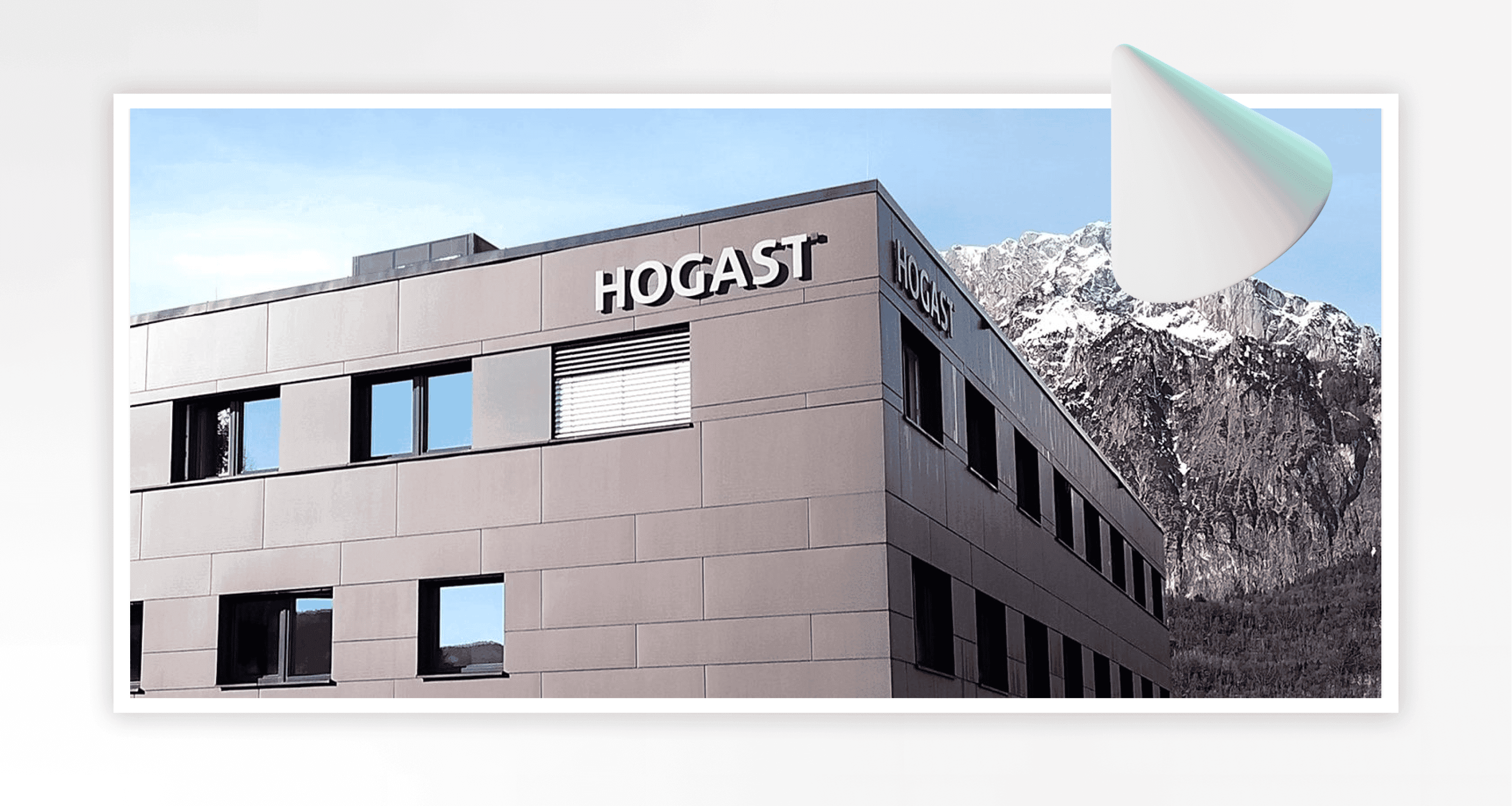Today, sustainability is more than just a trend, it is a key component of corporate strategy. The European Union has set a clear framework with the European Sustainability Reporting Standards (ESRS), which will apply from 2024. This includes the ESG reporting obligation, according to which companies must regularly report on the topic of sustainability in their company. These reports cover environmental, social and governance (ESG) aspects and are intended to increase transparency about the company's non-financial impact. The aim is to provide stakeholders - including investors, customers and the public - with comprehensive information about the company's sustainability practices and social responsibility.
Portrait

HOGAST is a leading purchasing cooperative for the hotel and catering industry that was founded over 45 years ago. Its main objective is to create price advantages by bundling volumes across companies and to relieve businesses of routine tasks. In addition to the comprehensive procurement of goods, HOGAST also takes care of electricity, fuel, telephony and other services in order to offer its more than 3,200 member businesses in Austria the best conditions and optimized processes.
HOGAST is the largest company of its kind in Austria with a turnover of 415 million euros. The subsidiary in Munich is responsible for serving southern Germany. In addition to HOGAST, the 1HOGAST Group also includes HOTEL GASTRO POOL for smaller hotel and catering businesses and HANDOVER, which supports facilities in the social sector.

Peter Sigmond, Senior Goods Manager
While organizations like HOGAST themselves are not directly subject to ESG reporting requirements, they are nevertheless pioneers in demonstrating what sustainable action can look like in practice. HOGAST's decision to switch to digital signatures with sproof sign is an impressive example of how companies can use technological innovation to reduce their environmental footprint while increasing financial efficiency.
Peter Sigmond, Senior Goods Manager, said the following in an interview: "For us as a company, two aspects were decisive in choosing a digital signature solution. One of them was the corona pandemic, because short-time working and working from home meant that we had to rethink, because without a new digital system we would no longer have been able to sign contracts, invoices and orders.
The second aspect, which has certainly been a topic of discussion with the management for some time, is that we as a company have focused on digitalization and sustainability at the same time. With the focus on this, we finally reached the point where we decided to sign everything digitally and where it is possible to dispense with all paper invoices and contracts."
Return on investment and sustainability
This decision paid off after just 18 weeks. The implementation of sproof sign as an all-in-one signature solution led to a significant reduction and streamlining of administrative work at HOGAST. The accelerated approval processes and reduced waiting times not only optimized business processes, but also contributed significantly to cost savings.

Return on investment after 18 weeks with sproof sign
These savings can be quantified in both financial and environmental terms: Average time saved per digitized signature workflow internally and externally, the gross hourly wage of those workers who do not have to struggle with preparing and handling analogue contract processes, the cost savings per sheet of A4 saved, CO2 emissions saved and energy consumption. It should be noted that some factors that could influence the actual added value were not included in the calculations, such as business trips, storage and archive costs, costs for printing and scanning technology and financial disadvantages due to long waiting times for contracts to be concluded.
The combination of economic and ecological benefits made sproof sign a strategically valuable investment
HOGAST is just one of many companies that has benefited from implementing sproof sign into its existing operational processes. But what exactly are the use cases for digital signatures there? Mr. Sigmond explains: "Basically, we are the link between our customers or members and the suppliers. However, this also means that all invoices and orders go through HOGAST and in some cases we have to sign and countersign them. You can imagine the signature chain as a triangle between the supplier, individual members and HOGAST.
One example where the digital signature is used and helps is when new suppliers are added. There are also contracts that need to be signed. Before we opted for an eSignature solution, we first had to send everything in paper form by post and wait. Because the entire company actually consists of four companies, in this use case the supply partner has to sign once and HOGAST four times. It could take two to three weeks for everything to arrive back to us. With the digital solution from sproof sign, this is much faster.
But we also use the eSignature to record deliveries. This is because all order confirmations over 7,500 euros have to be countersigned by us after the customer and supplier have already signed. This is a liability issue! HOGAST is also liable for its customers if they go bankrupt or become insolvent. We then pay the invoices for our members, but only if the order confirmation or order has been countersigned by us beforehand. This is a really important aspect for our members and suppliers."
Efficiency and sustainability for the future thanks to sproof sign
By using digital signatures alone, HOGAST saves an average of 10 minutes per external signature workflow without logistical effort and up to 20 minutes for workflows with logistical effort. In addition, the company's CO2 emissions per sheet of A4 can be reduced by 0.008 kg and energy consumption per sheet by 0.0648 kWh. But also 0.14 euros per sheet for printing costs and procurement have been completely eliminated since working with sproof.
With sproof's ROI calculator integrated on the website, companies subject to ESRS can now also calculate their potential savings and thus increase the efficiency of their own business processes and drive forward their sustainability goals. HOGAST's experience clearly shows that digital signatures are not only a technological innovation, but can also make a decisive contribution to a more sustainable future.
More blog entries
The digital signature is making its way into Austria's law firms.Digital signatures according to FDA (Part 11) create traceability in FDA-regulated industriesInnovative solutions for a sustainable future: the partnership between sproof sign and Energie AG OberösterreichGDPR compliance: what you need to know, the rest is optionalWhat is the digital signature?


